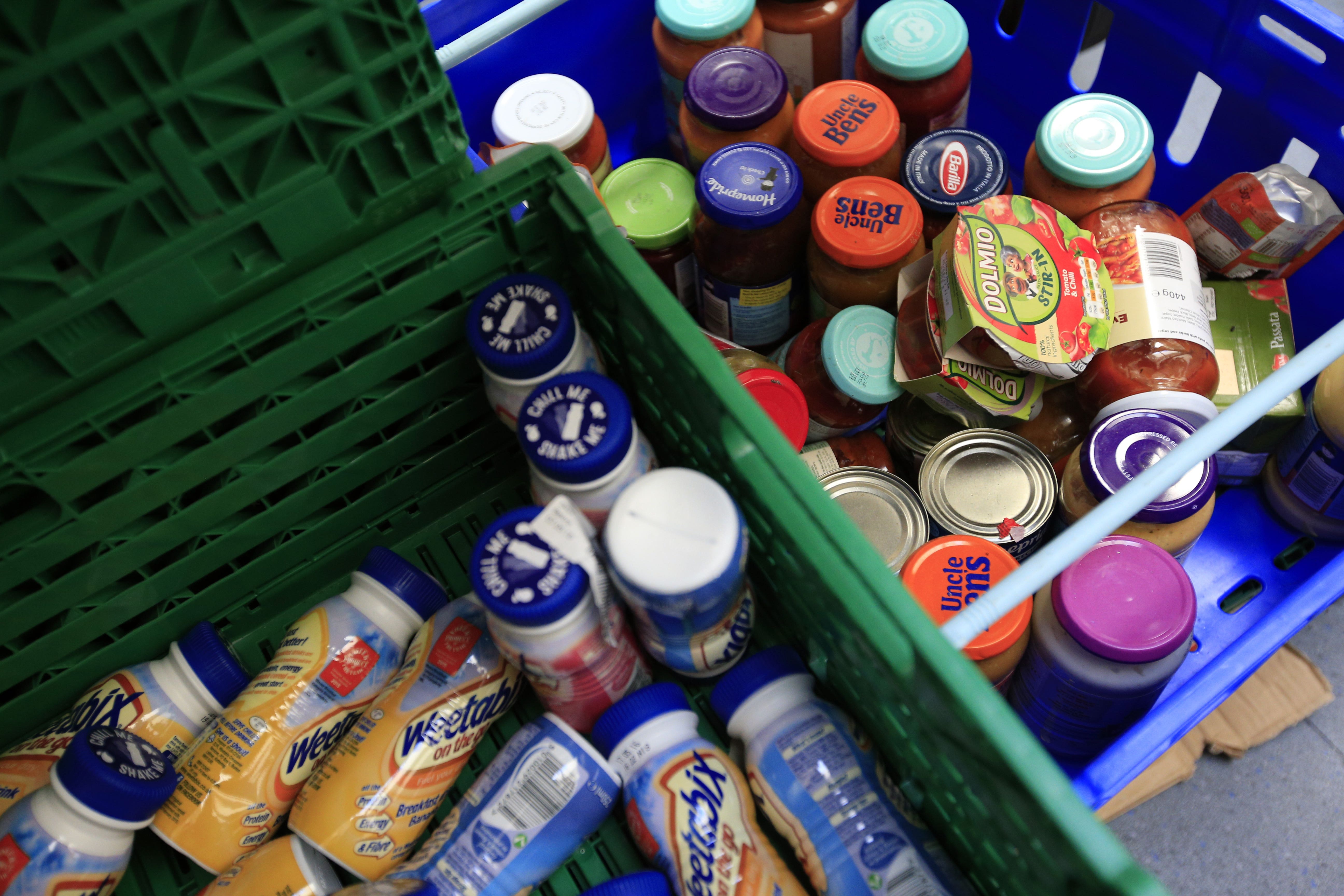Food banks see tens of thousands of first-time users as parcels hit record high
The Trussell Trust said 320,000 people have needed to use a food bank for the first time in the past six months.

Food banks have given out a record 1.5 million emergency parcels in a six-month period, including for tens of thousands of first-time users, in statistics described as “extremely alarming”.
The Trussell Trust charity’s UK-wide network of food banks said 65% of all the parcels dispatched between April and September this year were for families with children.
The situation means a “generation is growing up believing that it’s normal to see a food bank in every community”, according to the organisation’s chief executive Emma Revie.
The total of 1,496,847 parcels given out between the beginning of April and end of September is up from 1,292,621 in the same period last year, and from less than a million in those six months in 2021, the charity said.
More than half a million (543,635) parcels were for children in the latest period, compared to 487,884 in the same six months last year, and 370,575 in that period in 2021.
The parcel figure for children living in families who could not afford the essentials is at a record high, which the charity said is a reflection of the “continuing rise in need for the support provided by food banks”.
Trussell Trust said 320,000 people have needed to use a food bank for the first time in the past six months, as the organisation warned food banks “are at breaking point as more and more people in communities across the UK find themselves unable afford the essentials”.
The charity, which supports more than 1,300 food bank centres across the UK, had already predicted last month that centres could hand out a record more than one million emergency parcels this winter amid an ever-growing need.
People in work, as well as people who cannot work, are increasingly being pushed into debt and forced to turn to a food bank to survive
On the latest figures for the most recent six-month period, Ms Revie said: “These statistics are extremely alarming. An increasing number of children are growing up in families facing hunger, forced to turn to food banks to survive. A generation is growing up believing that it’s normal to see a food bank in every community. This is not right.
“Rising hunger and hardship have devastating consequences for individuals and our communities, damage the nation’s health and hold back our economy. People in work, as well as people who cannot work, are increasingly being pushed into debt and forced to turn to a food bank to survive.”
The organisation repeated calls which have also been made by other charities working to tackle poverty, homelessness and helping children, for a so-called “essentials guarantee” to be brought in – meaning Universal Credit should protect people from going without the basics.
Trussell Trust also emphasised the call to Chancellor Jeremy Hunt to confirm in the Autumn Statement later this month that benefits will rise in line with inflation.
Separate research last month from social change organisation the Joseph Rowntree Foundation (JRF) suggested almost four million people, including more than a million children, experienced the most extreme form of poverty last year in the UK.
The organisation said the figure for children has almost trebled since 2017 and topped one million for the first time since it began its research in 2015.
Bookmark popover
Removed from bookmarks